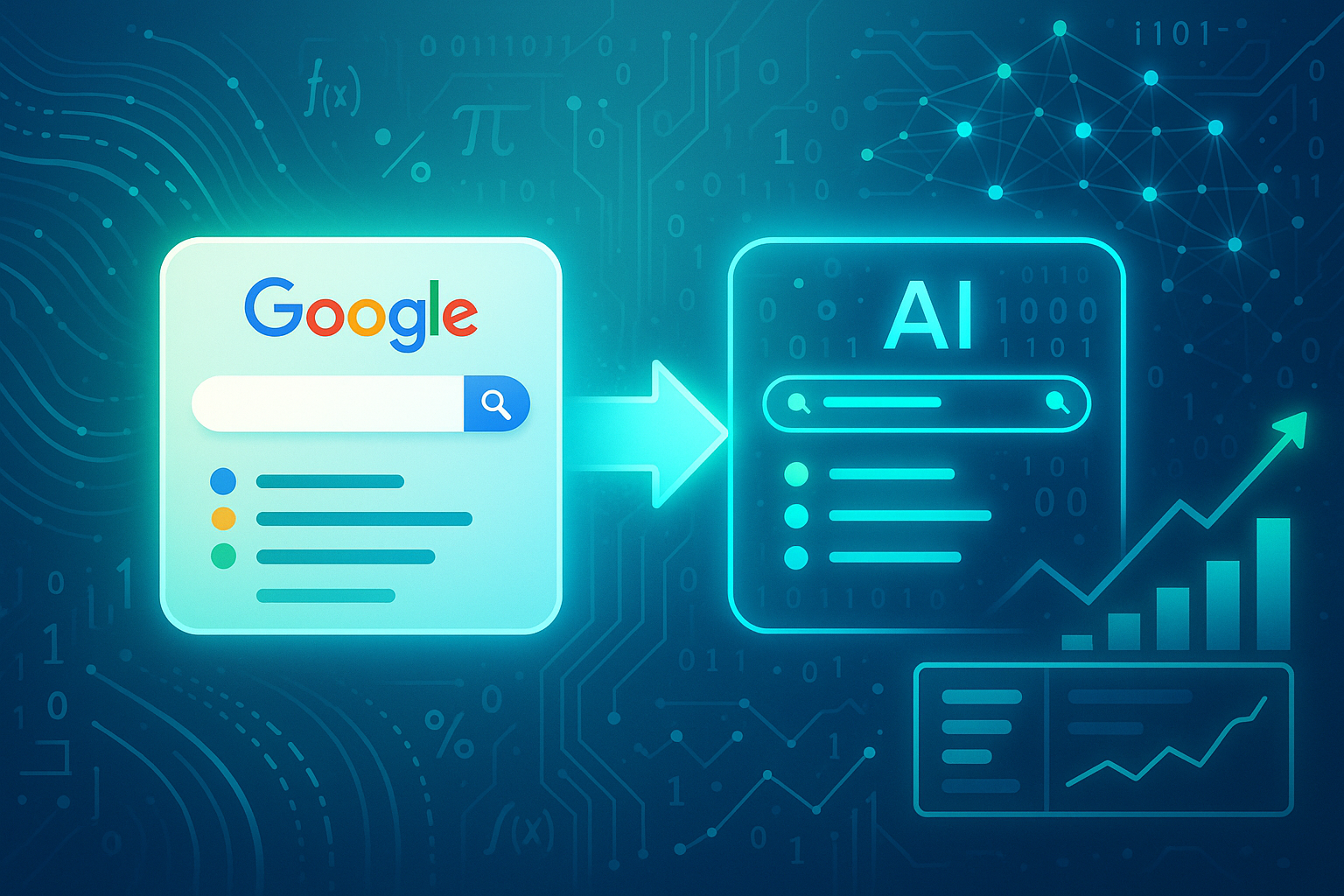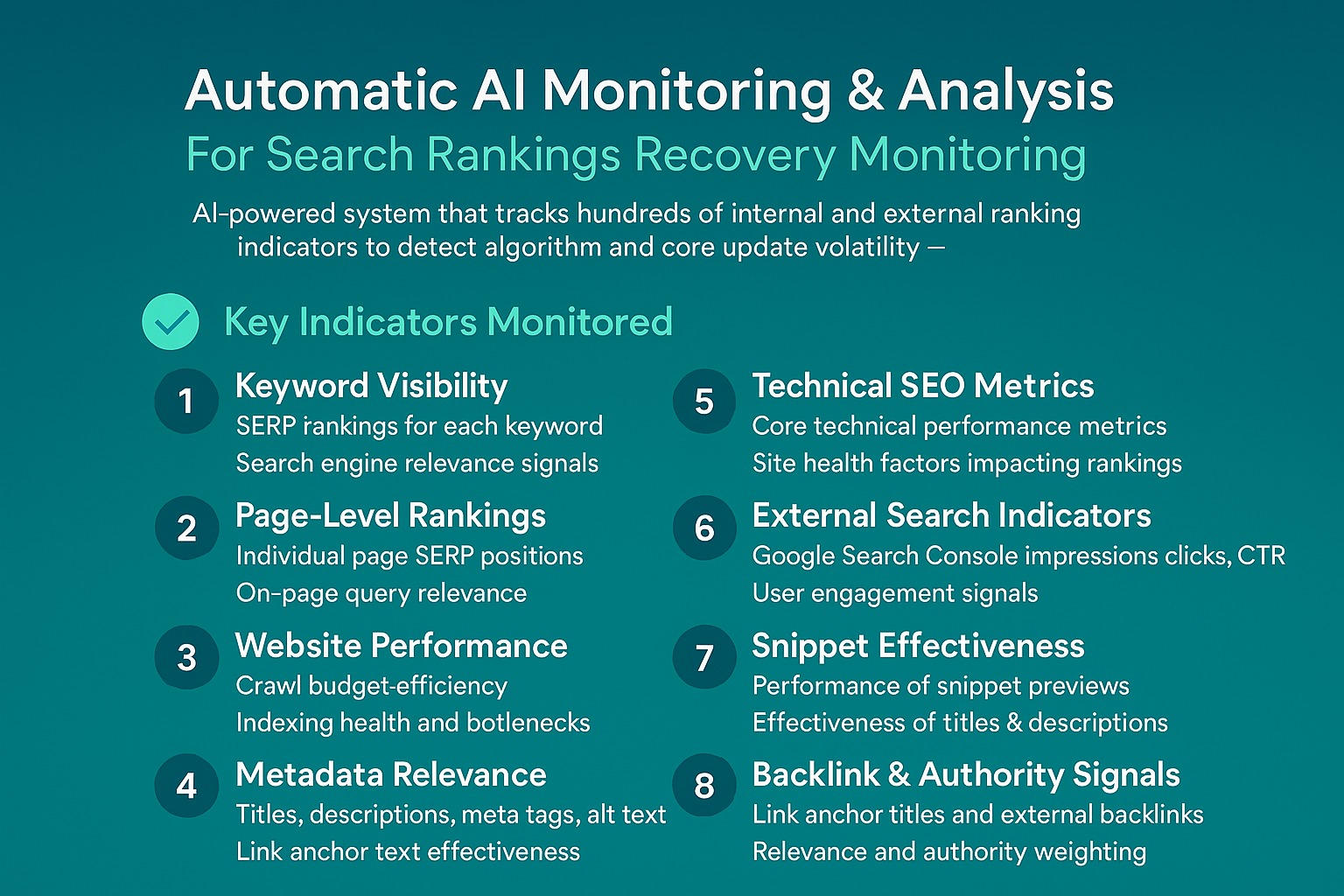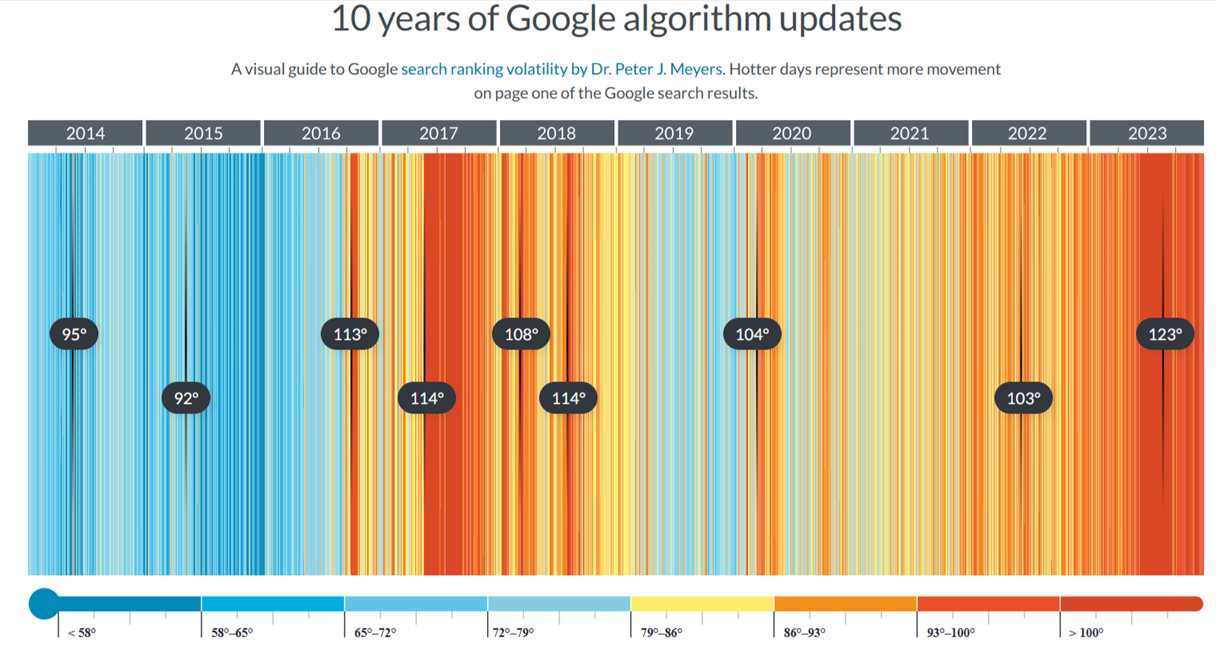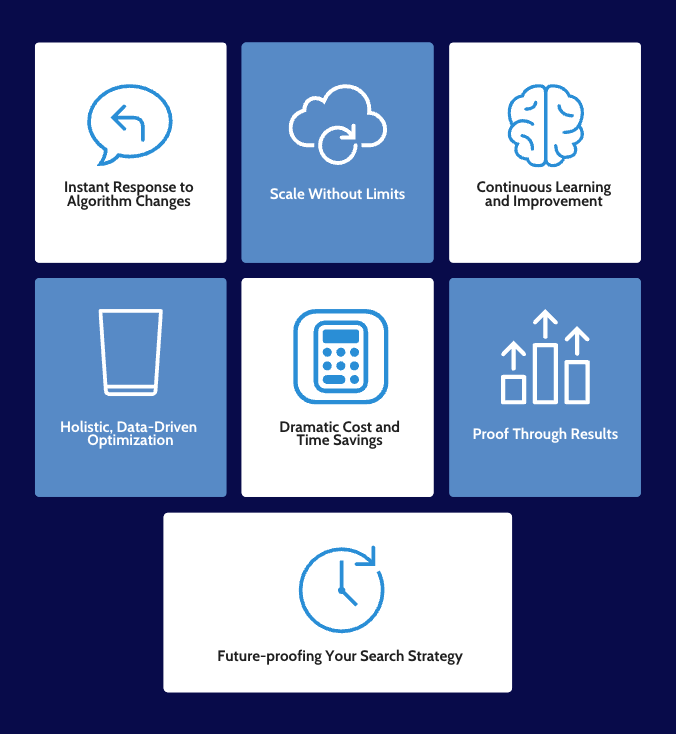How to Stay Ahead of Google Updates and Thrive in the AI Search Era
For digital marketing agencies, enterprise websites, and growing online businesses, the constant evolution of search engine algorithms is a persistent challenge. Google and other major search players regularly update their ranking formulas, sometimes without advance warning, leaving many website owners scrambling to respond. Historically, most teams have depended on reactive SEO systems – relying on periodic audits and manual updates whenever a drop in ranking or traffic is noticed. While this catch-up method may yield results eventually, it almost always involves a period of lost visibility and missed business opportunities.
It’s important to note that advanced systems like NytroSEO don’t try to decode or predict every move a search engine makes. Instead, the system reacts based on observable indicators – such as drops in rankings, changes in how relevant pages are for key search terms, or new priorities detected in search engine behaviors. These signals prompt the system to analyze, learn, and then intelligently implement updates to your website’s meta tags, structured data, and on-page signals. NytroSEO doesn’t make changes in a constant real-time stream but applies updates strategically when it matters most, after analyzing these search engine indicators and only after assessing the impact. This approach minimizes unnecessary shifts, avoids negative outcomes, and helps recover or improve search performance for all types of businesses, from SEO agencies to major publishers.
Why NytroSEO Adaptive SEO Automation Outperforms Traditional SEO Systems?
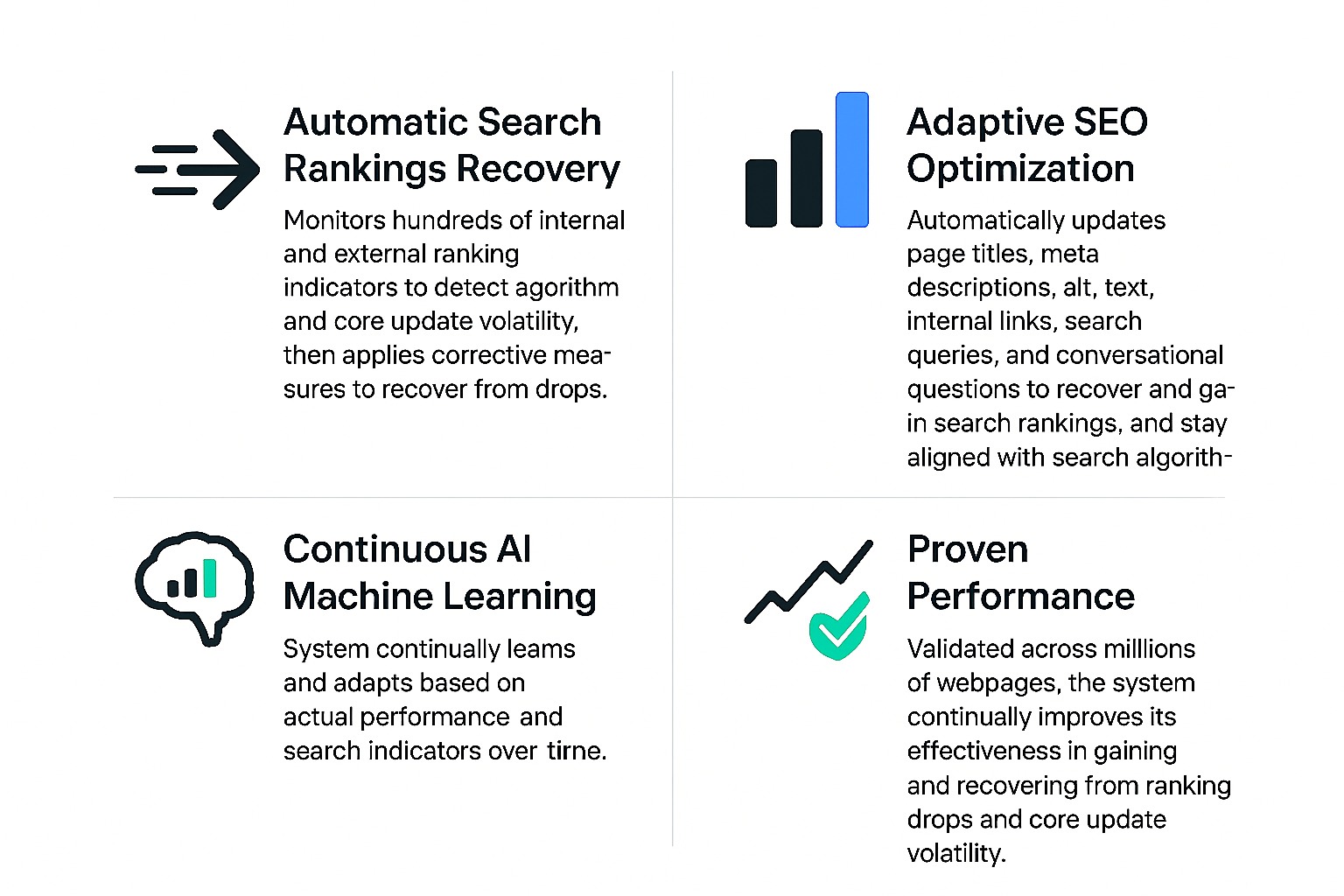
According to a 2025 Search Engine Journal report and recent guidance from Google’s Search Central blog, the majority of successful recoveries from ranking volatility involved rapid metadata updates – a strategy NytroSEO clients experience as default, not exception. Google’s official announcement said this: “This is a regular update designed to better surface relevant, satisfying content for searchers from all types of sites.” “The notable part for SEO is that it is able to retrieve fewer candidate pages for ranking, leaving the less relevant pages behind and promoting only the more precisely relevant pages.” Search engines’ understanding of relevancy depends to a large extent on the correlation between the webpage content and its meta tags, structured data and multiple other parameters. Ensuring that their relevancy is maintained and optimized enables a webpage to have better chances to be promoted and ranked as one of those relevant pages affected by this Google core update!
However, search engine rankings and AI-driven visibility depend on many internal and external factors, and performance or recovery cannot be guaranteed. The continuous application of NytroSEO’s Adaptive SEO automation, though, often results in positive ranking improvements and recovery in dynamic search environments
How NytroSEO Adaptive AI SEO Systems Enable Real-Time SEO Adaptation
What really sets adaptive SEO automation apart is its AI-driven ability to monitor, analyze, and respond at any moment. Instead of waiting for signs of trouble or scouring ranking reports for anomalies, these systems operate as a “living layer” over website content. They inspect search engine data streams continuously, looking for changes in how specific keywords or meta fields are being valued.
Let’s break down how a platform like NytroSEO puts this into action. The platform routinely analyzes SERP positioning, topical relevancy, meta tag effectiveness, and even the latest language models powering tools like Google SGE and ChatGPT. It then adapts on its own, altering meta titles with the latest trending phrases, updating image ALT tags for clarity, and refining internal linking to shore up content clusters.
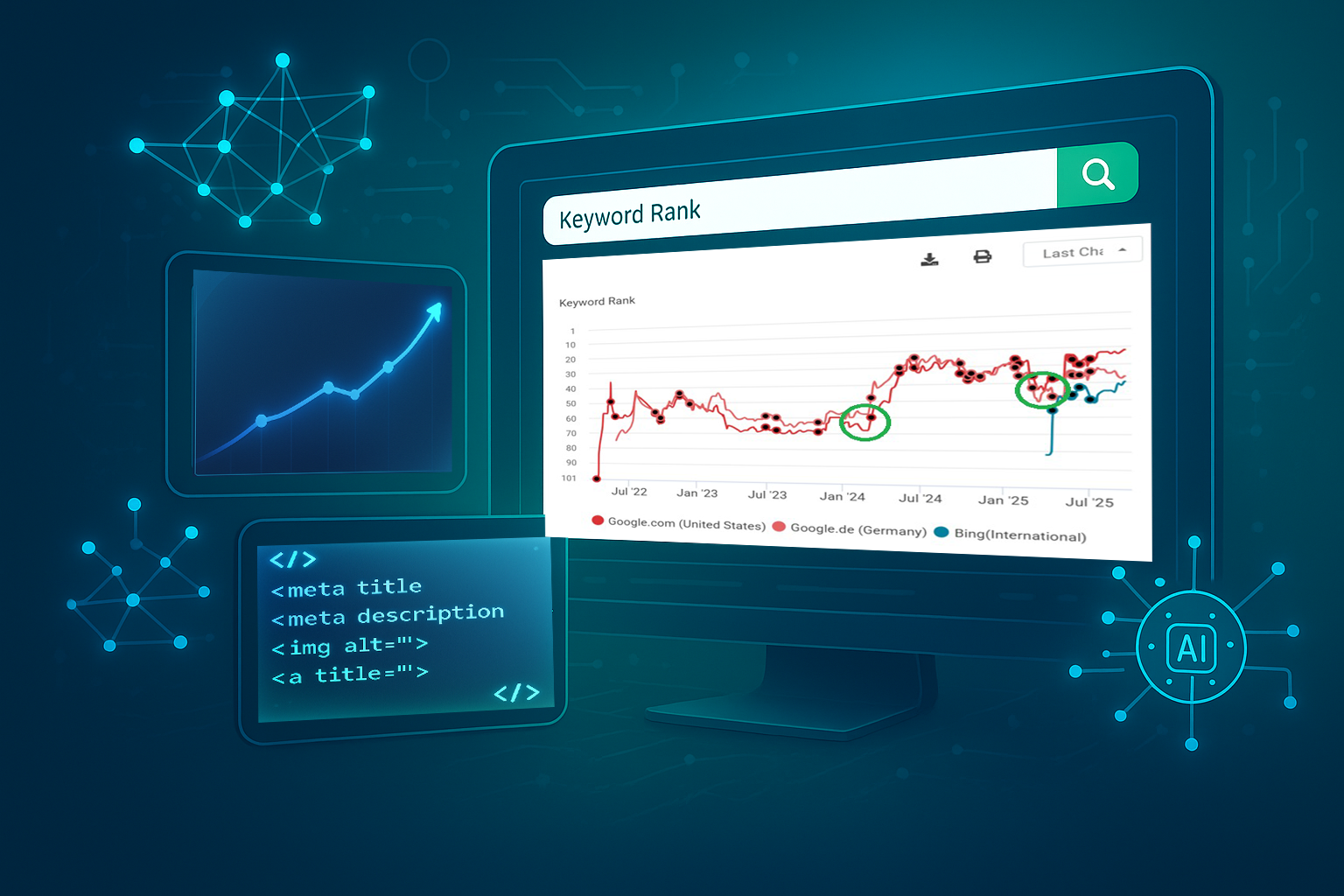
Consider an example from a digital publisher managing over a million URLs. After a Google update, the publisher noticed a significant decline in rankings across thousands of pages. NytroSEO’s adaptive system responded not because it “predicted” a shift, but because it observed those clear performance drops. As part of its automated SEO adjustments, NytroSEO reviewed the affected meta tags and, where beneficial, enhanced them to better reflect conversational queries and question-based formats, improving alignment with the latest AI-driven ranking opportunities. This approach provided broad, fast recovery in both organic and generative result-type placements – without weeks of manual intervention.
This live response is key. Traditional SEO might make quarterly or monthly adjustments, always after the fact. Adaptive SEO automation keeps up with shifts as they happen – whether Google tweaks what ‘relevance’ means or a new AI-powered discovery tool emerges. Agencies and large brands using AI adaptive SEO systems don’t just safeguard their traffic – they grow it, capturing higher positions in both classic and generative answer formats.
The result is not just speed, but scale and accuracy. Where a manual update might introduce errors or miss nuanced ranking factors, a self-adjusting SEO system continually refines every field based on the latest real-world performance data. This forms a reliable loop of learning, updating, and outperforming the reactive methods still common in the industry.
Tested & Validated: Proven Results Across Millions of Web Pages
NytroSEO’s adaptive SEO automation isn’t just a theoretical solution – it’s tested and proven on a massive scale. Across industries and in some of the largest, most complex site environments, NytroSEO has consistently delivered measurable improvements. According to recent case studies, over 76% of websites leveraging NytroSEO’s automated system recovered their search engine rankings after an algorithm update or unexpected ranking drop.
When Google or another search engine updates their algorithm, NytroSEO’s dynamic approach immediately identifies ranking fluctuations across every URL. The platform then realigns metadata, adjusts structured data, and refreshes internal links, making sure each page continues to match the new ranking factors and user search intent. Automated SEO adjustments happen autonomously, at scale, providing an almost immediate response without manual intervention.
This strong recovery rate demonstrates why leading SEO agencies and large publishers trust NytroSEO for crucial projects. Even as search engines become more complex, Nytro’s machine learning engine constantly evolves, learning from new algorithm signals and continuously improving performance with each cycle. This means results not only repeat, but improve over time. Brands and agencies benefit from being on a platform where the success formula keeps getting smarter.
Navigating Google Core Updates and Search Volatility
Every year, Google releases several core updates that significantly impact website rankings. These updates – which you can track via the Google Search Status Dashboard – are designed to improve the quality and relevancy of search results by refining Google’s algorithm on how it interprets website content, intent, and authority. While some core updates are minor, others can lead to sharp and sudden changes in rankings, often referred to as ‘algorithm volatility.’
According to Moz’s Google Algorithm Update History, core updates can cause significant shifts in visibility for entire industries. These updates typically aim to reward content that’s more relevant, trustworthy, and user-focused. However, the flipside is that many websites see abrupt ranking drops or spikes overnight – even if their actual content hasn’t changed.
For example, the March 2024 Core Update was particularly impactful for publishers and e-commerce brands, with some reporting losses or gains of 30%-50% in organic traffic (Search Engine Land report). These fluctuations stressed the crucial need for real-time monitoring and rapid adaptation of on-page SEO elements like metadata, structured data, and internal linking.
Here’s where adaptive SEO automation provides a major advantage. Rather than waiting for the dust to settle, platforms like NytroSEO immediately detect whether your website is losing or gaining visibility. If volatility is detected across pages or keyword rankings, NytroSEO’s automated SEO adjustments spring into action, rapidly optimizing all affected title tags, descriptions, ALT texts, and more. This real-time approach turns unpredictable core updates into opportunities, allowing you to recover faster and sometimes even leap ahead of competitors still relying on manual or reactive seo systems.
For deeper insights and current volatility trends, you can review live tracking from tools like Semrush Sensor and Rank Ranger’s Google Updates Tracker. These resources illustrate how fast-moving and unpredictable Google core updates can be – and why algorithm-aware, dynamically adapting SEO is no longer optional for serious digital marketers. Websites that implement dynamic website optimization don’t just keep up – they pull ahead. They become less vulnerable to sudden losses and better equipped to respond to shifts in search behavior, whether in classic blue-link SERPs or new conversational search results. This is especially critical for large e-commerce brands, publishers, and agency-managed portfolios where the scale of updates needed can number in the tens of thousands of pages.
How Does NytroSEO Adaptive SEO Automation Outperform Traditional and even other Modern AI Enabled Systems?
Traditional SEO relies heavily on manual processes – such as scheduled audits, spreadsheet tracking, and individual page edits – often performed long after Google or Bing has updated their algorithms. Once a decline in rankings is noticed, teams must diagnose the issue, plan changes, assign fixes, and wait for the next search engine crawl to see if problems are resolved.
With NytroSEO’s adaptive SEO automation, this cycle is completely transformed. Here’s why NytroSEO delivers results that traditional, reactive SEO simply can’t match:
- Instant Response to Algorithm Changes: NytroSEO’s AI monitors both internal performance and external signals day and night. When it spots a change in ranking factors or a drop in page performance, it acts immediately – no need to wait for quarterly audits or manual diagnosis. This means your site gets optimized while competitors are just learning about the change.
- Scale Without Limits: NytroSEO optimizes every meta field, structured data, and key on-page element across thousands – even millions – of URLs in a single sweep. Manual teams struggle to update a few hundred pages per week. NytroSEO users have seen entire portfolios recover or climb in visibility within hours after significant core updates, thanks to automated bulk changes across the board.
- Continuous Learning and Improvement: NytroSEO’s AI engine doesn’t treat every site or page the same. It analyzes which updates yield the best improvements, refines its approach, and adapts to new trends with each cycle. This ongoing learning process delivers “best next move” optimization – something human teams and basic automation tools can’t reliably deliver.
- Holistic, Data-Driven Optimization: NytroSEO takes action based on a wide range of live data – search trends, AI-powered answer boxes, user intent signals, SERP layout changes, and more. By integrating all of these insights, NytroSEO ensures every update is grounded in what’s currently working in modern search.
- Dramatic Cost and Time Savings: By replacing countless hours spent on manual reporting, diagnosis, and execution, NytroSEO cuts SEO operational costs by up to 80% for agencies and in-house teams. That time is re-invested in strategy, content innovation, and business growth rather than technical “catch-up.”
- Proof Through Results: Real customers using NytroSEO have reported bounce-back rates of over 76% after ranking drops, higher inclusion in AI-generated search summaries, and significant increases in clicks and impressions – all without adding headcount or waiting months for results.
- Future-proofing Your Search Strategy: The search landscape is evolving – from classic links to voice answers and generative AI results. NytroSEO is built to adapt to every new format and technology, ensuring your website is not left behind as user behavior and search engines keep changing.
Summary: NytroSEO’s adaptive approach is smarter, faster, and more reliable than traditional, manual SEO systems. It brings together real-time data, AI-powered decision-making, and instant execution to help brands, agencies, and mega-sites not just survive algorithm volatility, but consistently thrive in a fast-moving digital marketplace.
Comprehensive Page Optimization: The Engine of Brand Visibility in Dynamic Website SEO
While content quality is critical for online success, how a website presents this content to search engines is just as important. Search optimization today is not only about adjusting page titles or improving descriptions but involves a holistic, algorithm-aware approach. This includes structured data, internal linking, as well as metadata, working together to ensure that every signal matches evolving search requirements.
Many brands depend on out-of-the-box templates or one-size-fits-all plugins that result in bland, repetitive websites with poor keyword alignment and limited coverage for new generative AI searches. NytroSEO stands apart by constantly optimizing each of these elements instead of focusing on just one area. By refining page-level elements, structured data, and internal link structures, NytroSEO builds a strong foundation for AI and search engines to understand, rank, and recommend your content.
While content remains central to online success, the way it is presented to search engines – through metadata – determines who sees it and in what context. In the current search environment, metadata is the “last mile” where intention meets visibility. Algorithm-aware SEO now places even greater importance on optimizing titles, descriptions, ALT text, and structured data throughout every content update.
Brands often overlook this detail, relying instead on static templates or plugins that deliver generic titles and descriptions. The difference with platforms like NytroSEO is their explicit focus: continually optimizing these fields for both traditional indexes and the new generation of generative AI search engines.
For example, as AI models learn to summarize web content for quick answers to user queries, pages with well-structured, question-focused metadata are increasingly featured. NytroSEO tracks these shifts in real time, rolling out metadata changes at scale as soon as new patterns are detected. A retailer with 100,000 product listings was able to boost product appearance in “People Also Ask” widgets and AI answer boxes simply by letting Nytro’s adaptive SEO automation keep the tags up to date with current ranking factors.
Brands also save hundreds of manual hours. For most agency clients and enterprise marketers, dynamic SEO means they don’t wait for a quarterly audit to push changes. Instead, every page is made more searchable, engaging, and AI-friendly on a rolling basis.
According to Google’s official blog, and recent publications from Search Engine Journal, prompt metadata improvements after an update are frequently the critical difference between a traffic loss and a fast recovery. Brands leveraging algorithm-aware SEO tools now find themselves recognized not just for basic queries, but for a wider array of high-value long-tail and conversational searches – a transformation plain to see in analytics and dashboards.
Structured Data and Internal Linking Optimization Planned for Development Roadmap
Modern SEO is much more than keywords and basic meta descriptions – structured data and internal linking are fundamental for helping search engines evaluate a website’s authority and relevance. These elements play a vital role when it comes to expertise, trust, and overall visibility, especially in AI search results.
NytroSEO is currently developing automated management and optimization of structured data and internal links. At present, the platform does not yet automatically optimize these advanced functions, but they are recognized as essential and are on the roadmap for future releases. The goal is for the system to proactively inject and update schema markup – such as FAQ, HowTo, LocalBusiness, and Article schema – to enhance a site’s opportunity for Google rich snippets, AI Overviews, and next-generation conversational search features.
Similarly, dynamic internal linking is a key area of ongoing development at NytroSEO. When complete, this functionality will allow the platform to intelligently connect related site content – improving topical authority, user experience, and distributing link authority to high-priority landing pages.
NytroSEO is committed to innovation, with automated schema markup code optimization and contextual internal links under active development. These capabilities, when launched, will further strengthen trust signals and support authoritative SEO for every client.
Scaling Dynamic SEO: Automated SEO Adjustments for Large Sites and Agencies
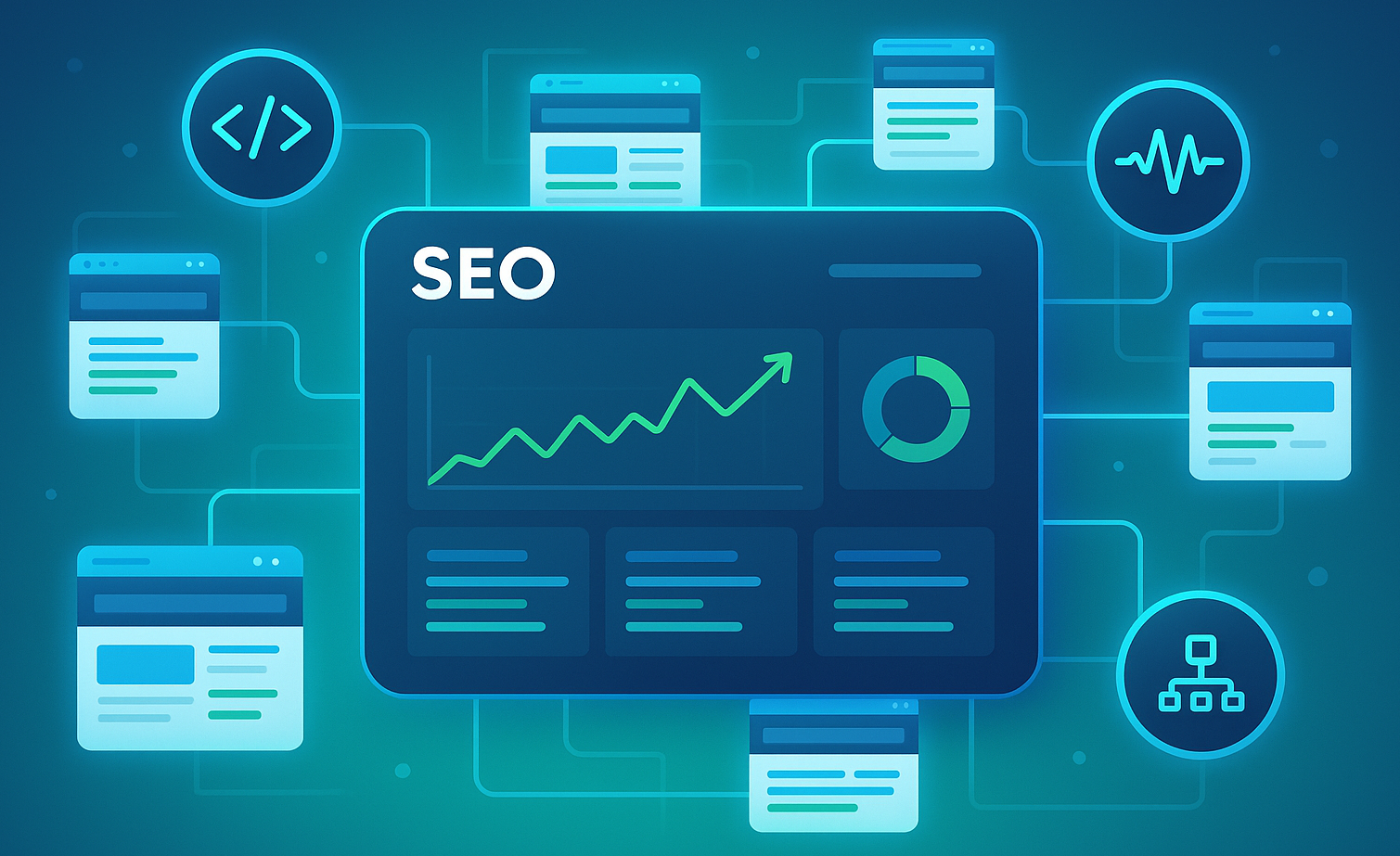
NytroSEO’s system eliminates these obstacles. It identifies and responds to search shifts – such as when a search engine starts emphasizing freshness, authoritative authorship, or even specific semantic cues in link title tags – within hours, not weeks. The system then automatically refreshes each relevant meta field, ensuring every URL in the portfolio remains competitive.
For agencies managing dozens of client sites, this level of automation is a game-changer. Instead of scrambling to deploy fix-it tasks across hundreds of URLs each time a Google update goes live, agency teams have access to multi-site dashboards, progress reports, and built-in recommendations. A digital marketing agency with several e-commerce clients found its abandoned cart recovery rates improved after new AI chat tools started pulling dynamic, updated product meta descriptions from their optimized sites.
This is possible because dynamic website SEO isn’t just about making a handful of meta changes. It automates the underlying process, guaranteeing on every page:
- Meta titles reflect the most current targeted keywords and searcher intent.
- Meta descriptions align with trending phrases and optimize for both human users and AI summarizers.
- Image ALT text is written for both accessibility and modern image indexing algorithms.
- Link title tags incorporate contextual relevance, the way AI-driven search models interpret topical clusters.
No manual spreadsheet can deliver that level of precision or speed.
These capabilities mean that every SEO agency or publisher using self-adjusting SEO systems can demonstrate fast, measurable ROI – not just with fresh rankings, but with proof of more comprehensive visibility across both classic and emerging search environments.
The Future: Why Adaptive SEO Solutions Are Central for Sustained AI Visibility
As search evolves from a system of blue links into a landscape dominated by generative answer boxes, voice search, and conversational assistants, brands need a strategy that extends beyond routine optimization. Real-time SEO adaptation is now essential. The rules change faster, and so does the technology behind them.
Generative AI tools, including Google’s SGE and Microsoft’s Copilot, now pull content directly from optimized meta fields and structured data when building on-the-fly answers. To be featured in these summaries, a site’s metadata must match both the machine’s criteria for context and the human searcher’s need for clarity and usefulness – or risk being filtered out. Dynamic SEO solutions use automated SEO adjustments to update site metadata whenever these requirements shift.
NytroSEO has demonstrated that, by prioritizing the continuous adaptation of metadata, brands dramatically improve their inclusion rate in AI-generated summaries and conversational engine responses. In practical terms, when Google began scoring for clear, timely, question-style meta tags, agency-managed clients using Nytro’s AI adaptive SEO systems saw their pages included in more relevant answer contexts without further manual input.
These developments mark a real pivot for the industry. Optimization is no longer about performing well in a single search interface but about surfacing in every context where users search – traditional query lists, AI-driven prompt replies, voice queries, and more. Agencies, large e-commerce brands, and publishers who choose algorithm-aware SEO with robust automated systems are seeing results: Movements in visibility metrics are faster, more predictable, and less vulnerable to the pitfalls of delayed change.
In this era, standing still is falling behind. Automated, AI-driven, and self-adjusting SEO is now fundamental – not a luxury. Whether managing 20 pages or 2 million, brands benefit from continuous, intelligent refinement that keeps every meta field and content tag optimized for today’s and tomorrow’s search.
Frequently Asked Questions (FAQ) About Adaptive SEO Automation, AI Visibility, and Metadata Optimization
An adaptive SEO system is an intelligent platform designed to monitor changes in search engine algorithms and search trends, then modify a website’s meta tags, structured data, and other critical elements automatically. Instead of waiting for manual intervention or periodic audits, these systems provide ongoing, real-time updates to maintain or improve search visibility in both standard and AI-powered search results.
The SEO landscape is no longer about who can produce the most content, it’s about who can produce the most strategic, optimized, and timely content. AI-driven SEO tactics give you the ability to understand searcher intent faster, adapt to algorithm updates instantly, and dominate high-value search terms with precision.
AI visibility refers to how prominently a brand or website appears in AI-powered search engines, generative answer boxes, and conversational interfaces. It involves optimizing metadata and content in ways that align with how AI systems interpret relevance, intent, and authority. NytroSEO enhances AI visibility by dynamically adapting meta fields to meet evolving algorithm demands.
NytroSEO automatically evaluates and assesses meta tags’ effectiveness each time the system runs its analysis – typically on a weekly or monthly basis. Its AI engine identifies the type of change in algorithm or ranking factor, then adjusts metadata sitewide so that rankings recover quickly and stay consistent. When a traffic drop is detected, NytroSEO automatically reconstructs meta tags to ensure every page remains relevant, using both internal data and current search engine standards.

